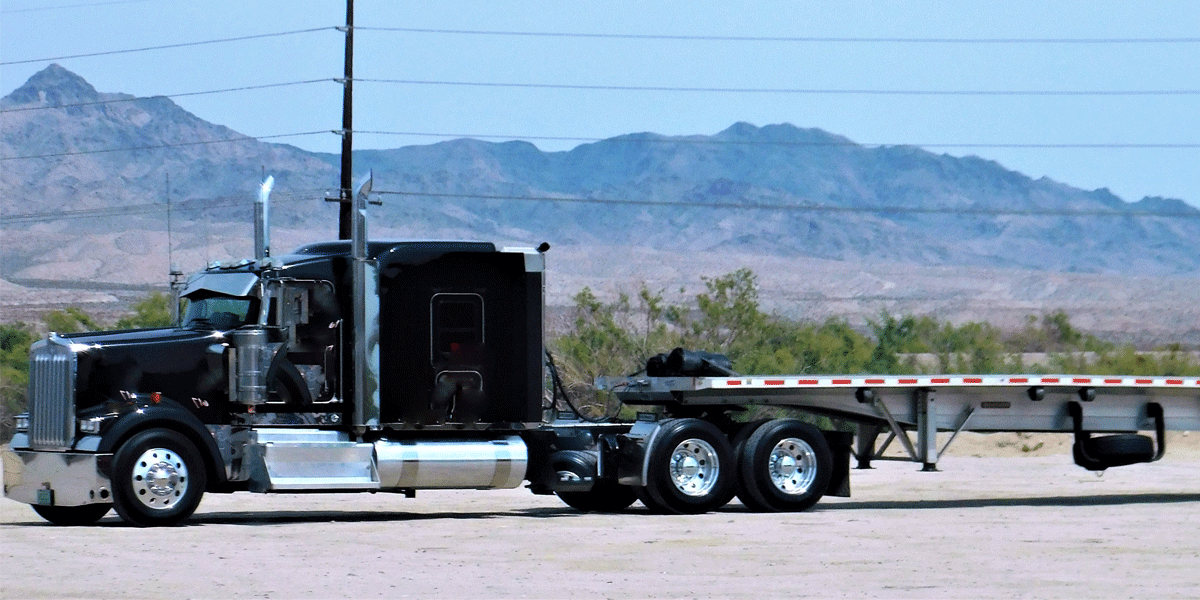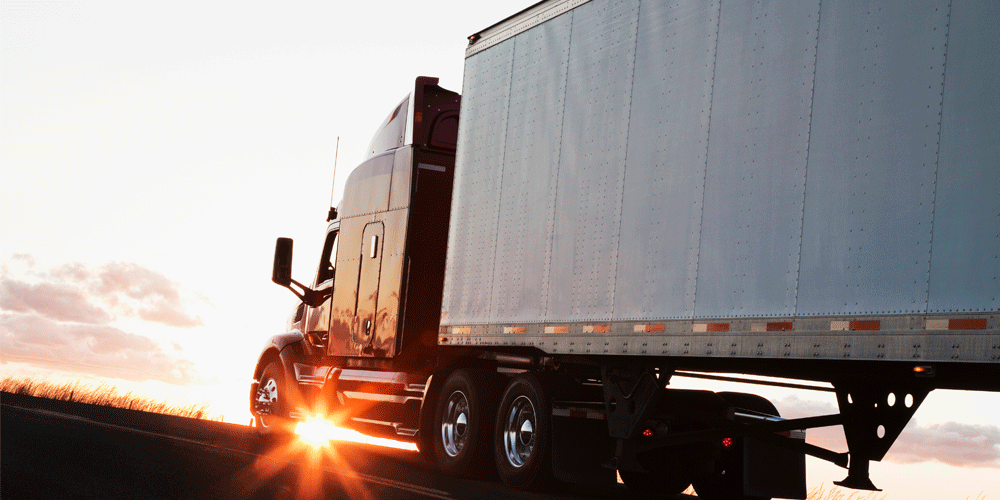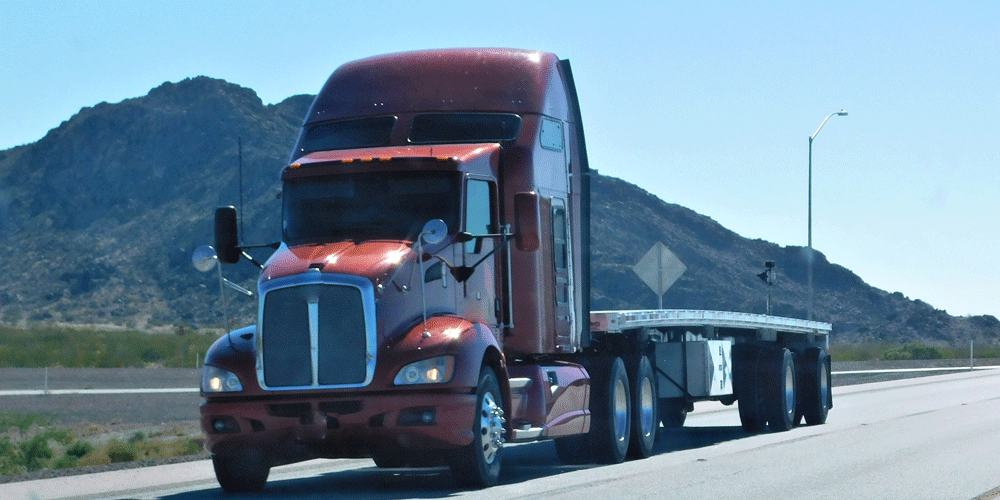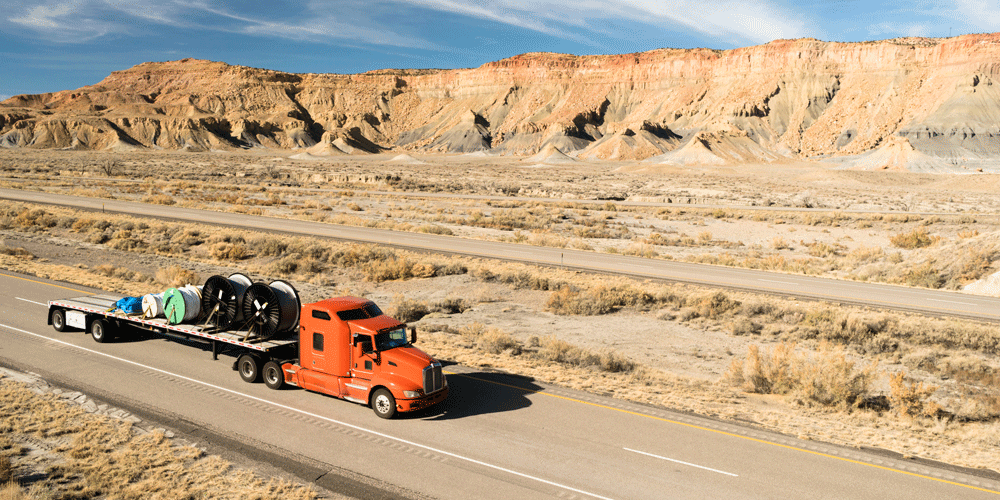Flatbed Driver | Dry Van Driver
Dry Van vs. Flatbed Truck Driving: Which One Should I Choose?
Robbie came to ATS with ten years of transportation experience under his belt. He has worked at ATS for the last seven years as a driver consultant. He prides himself on using his industry knowledge to assist drivers in making the best decisions for themselves.
Flatbeds or dry vans.
Dry vans or flatbeds.
What’s the best choice for you as a driver?
If you’re going back and forth between both trucking options, you should
carefully consider what you want your daily work life to look like and where you want to be 10 or 20 years down the road.
If you don’t carefully consider the pros and cons of each, you might be very unhappy with your choice — leading to a lot of frustration that could’ve been prevented.
If you take the time to research your options ahead of time, you’ll be more content with your choice and you’ll save yourself the trouble of switching programs and companies. As we all know, time is money.
As a driver consultant at Anderson Trucking Service (ATS), I talk to drivers all day about the differences between being a dry van driver and a flatbed driver. I’m happy to help you make the same decision for yourself as you read along.
I’ll break down the realities of dry van driving and flatbed driving so you can get a good feel for what aligns with your goals. When you’re done reading, you’ll know exactly which choice is best for you.
Dry Van Trucking — What Are the Pros and Cons?
As a dry van driver, you will be responsible for pulling up to a dock, connecting the trailer to your tractor, pulling away and delivering the load. Depending on your preferences, there are some aspects of the job that may be pros and some that may be cons.
Pro: Consistent Freight
When you are a dry van driver, you can rely on consistent freight. There isn’t a lull in the season where the freight market drops or freight availability drops as it does with flatbed driving.
Pro: Minimal Securement
Drop and hook is the name of the game with dry van drivers. There is minimal securement involved — especially when compared to flatbed trucking. You may have to secure a cargo load bar or padding or need to stack moving blankets, but that’s about it
Because you won’t be spending so much time securing your loads, you’ll be able to pick up your next load and jump right on the road. This might be preferable if you’re a very miles-driven driver.
It may also be preferable if securement is tough on your body. Sometimes, when veteran drivers reach a certain point in their professional driving life, they may reverse their path. They may have been in heavy haul for decades, but they’ll move down to regular flatbed loads and then down to vans because it is less demanding on the body.
If crawling on top of trailers to secure loads sounds unappealing to you — whether because it’ll be hard on your body or you don’t like heights, the minimal securement required as a dry van driver might be the best choice for you.
Con: Lack of Advancement Opportunity
If you like a predictable schedule, where you know what you’ll be doing each day, dry van driving might be right for you. You’ll be hauling the same type of trailer every day and moving similar goods.
However, there isn’t an advancement path for the dry van driver — there is no larger load or trailer to move up to like there is with flatbed driving. You could always move into the flatbed division and advance your skills that way, but if you want to drive a dry van, that’s what you will be doing for the duration of your trucking life.
You may take comfort in knowing you’ll be doing the same thing today that you’re doing in 20 years. For some drivers, that provides a sense of stability and consistency they crave. On the contrary, other drivers may be bored by this lifestyle.
Flatbed Trucking — What are the Pros and Cons?
As a flatbed driver, you’ll have a lot of room to advance your skills and move into different driving divisions like heavy haul. Just like with dry van driving, there are pros and cons of flatbed driving depending upon your preferences.
Pro: Skill Advancement
Today you might be starting out in flatbeds by pulling a regular flatbed trailer, but 15 years from now you might be in wind energy hauling massive blades down the highway. Or, you might be in heavy haul.
As a flatbed driver, you have the opportunity to go from pulling a regular flatbed trailer to step-decks and removable gooseneck trailers, to multi-axle trailers. You can haul up to 36 axles with a line trailer. Your advancement opportunities are endless.
As you advance in freight size, you can significantly increase your earning potential. Every advancement comes with an advance in pay. Because the same path isn’t available for a dry van driver, you won’t have the same opportunity to increase your income.
Pro: Freight Variety
As a flatbed driver, you may be hauling one type of trailer one day and a completely different type of trailer the next. You’ll have a lot of variety not just in the freight you’re hauling, but the trailers you’re pulling.
For some drivers, that provides a sense of excitement every single day. They enjoy the challenge of hauling different loads each day and figuring out how to secure them. Other drivers may feel differently and prefer not to haul such a wide variety.
Con: Securement
As a flatbed driver, you’ll receive securement training. You’ll need to chain and strap your loads to ensure they’re secured to the Department of Transportation’s standards. You’ll also need to regularly check your securements as you travel to your destination. You may need to tarp your loads too. It can be a lot to learn
Securing flatbed loads is hard, physical labor. Even carrying the heavy chains from your headache rack to their proper spot can be hard work, and that doesn’t take into account the work it takes to throw them over the load and secure them with a ratchet.
Some drivers prefer the physical labor. It can be good exercise, especially in a path that is known for its sedentary lifestyle because drivers are behind the wheel all day. Other drivers would prefer not to do that physical labor, or perhaps their bodies will not allow them to do it.
Keep in mind that you’ll have to take the time to secure your loads in all weather conditions. It might be below zero with windchill in Minnesota. It might be raining in Washington. It might be humid as all get out in the South. It doesn’t matter the weather or temperature — you’ll still have to secure those loads. You might be cold and your tarps are getting taken in the wind, but it can be a very frustrating aspect of your job.
Con: Winter Freight Market
The freight market tends to hit a lull during the winter. Certain industries slow in the winter, like the agricultural industry. The demand isn’t as high to haul these loads.
You could haul a similar load and drive the same amount of miles in the summer versus the winter and make more on the load in the summer. Prices fluctuate every year. Three months out of the year you may not be making as much as you’re used to making, so you’ll need to prepare for this during the other nine months of the year.
Similarly, there are frost laws that prevent heavy loads from being pulled in certain areas of the country during the winter months.
How Do I Decide Between Dry Van and Flatbed Trucking?
Ultimately, no one can tell you that one or the other is better (flatbed vs. dry van trucking). It comes down to your preference — including how you like to run day-to-day and the place you want to be in 10 years.
I’ll tell you what I tell the drivers I talk to every day: Consider your long-term goals. When you drive dry vans, your path is dry vans. If you drive flatbeds, you can move to specialized freight, over-dimensional freight or heavy haul.
Dry van trucking is a great option if you:
- Like consistent freight
- Don’t want to go through the tough physical labor of securing loads
- Enjoy the stability and predictability of hauling the same type of trailer today and 20 years from now
Flatbed trucking is a great option if you:
- Want to eventually haul over-dimensional or heavy haul freight
- Enjoy the challenge of hauling different trailers and freight every day
- Don’t mind the physical labor securement requires
At ATS, we understand that no two drivers are the same. You each have different circumstances and needs. That’s why we have options for dry van truck drivers and flatbed truck drivers.
We’d be happy to answer any questions you may have about either program. Simply fill out a contact form and a driver consultant will be in touch.




